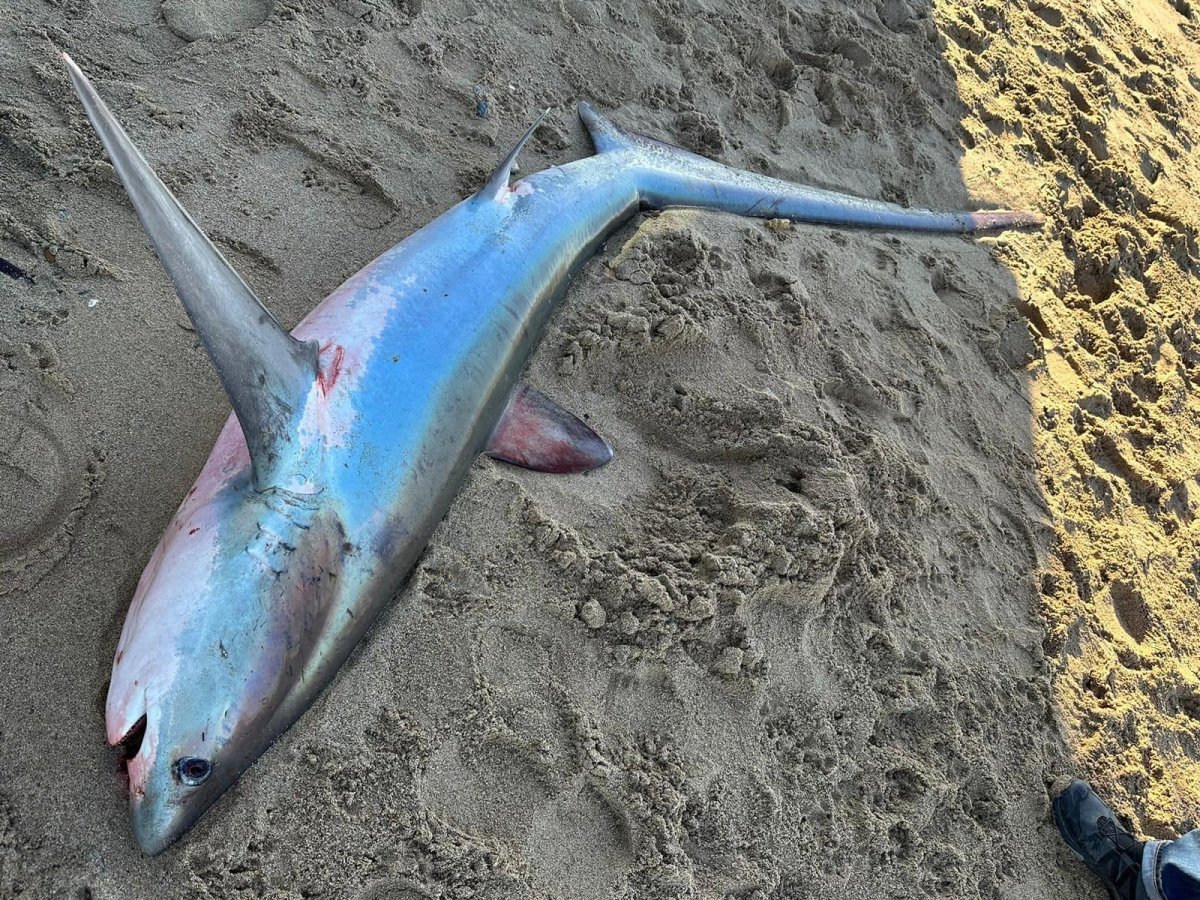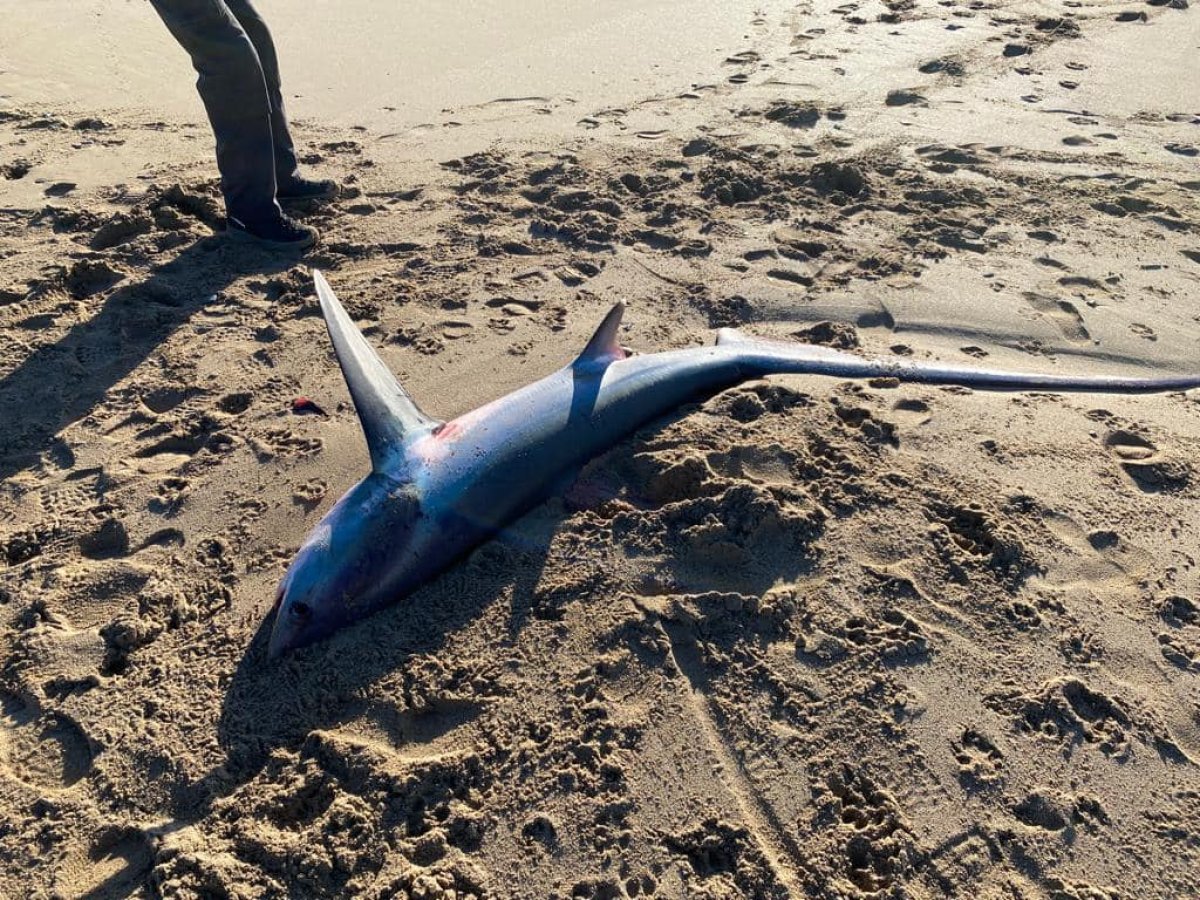A huge, healthy thresher shark has mysteriously washed ashore in Cornwall.
The shark was found on December 7 by a Cornwall Wildlife Trust Marine Strandings Network volunteer on the English county's Perranporth coast.
It's not unusual for marine animals to strand, but it's much more common among mammals than sharks.
"The shark went for post mortem with the Cetacean Strandings Investigation Programme (CSIP) which discovered that the animal had live stranded," a Marine Strandings Network spokesperson told Newsweek.
This means the shark died on land. When hunting in shallow waters, sharks may become disoriented meaning they struggle to find their way back to deeper waters.
There were no visible injuries on the animal and the post mortem determined that it was in fact "very healthy."

While the exact cause of strandings is unknown, washed up creatures are often found to be unwell in some way. Sometimes, wildlife that is unwell will lack the strength needed to find its way back out to sea.

Marine strandings also occur regularly due to injury—for example, if an animal is struck by a vessel. But there were no noticeable injuries on this shark.
It was nearly 10 feet in length, coming from a species that can get much larger. They can be found all across the world, but are more common in coastal waters across North America and Asia. They migrate through the Cornish waters during the summer months.
"They are sighted off our coast most years by water users and fishermen, and occasionally strand dead like this one did today," the Marine Strandings Network said in a Facebook post.
The survival rates of stranded sharks are extremely low. Only 9.9 percent of stranded sharks survive, a 2022 study by researchers at the Federal University of Paraná, Brazil found.
It isn't the first time marine life has mysteriously washed ashore on Cornish beaches. In March, an incredibly rare Greenland shark was found dead on Newlyn beach, Cornwall.
It took researchers a long time to determine what had killed the endangered, elusive species. It was eventually determined that the animal had died from meningitis, which is the first time this was ever recorded in the species.
Just a few months later, a dolphin with a missing tail was found in nearly the exact same spot.
It isn't fully understood why some spots are more common for strandings than others, but it may be to do with certain currents that are stronger in particular areas.
Uncommon Knowledge
Newsweek is committed to challenging conventional wisdom and finding connections in the search for common ground.
Newsweek is committed to challenging conventional wisdom and finding connections in the search for common ground.
About the writer
Robyn White is a Newsweek Nature Reporter based in London, UK. Her focus is reporting on wildlife, science and the ... Read more
To read how Newsweek uses AI as a newsroom tool, Click here.








